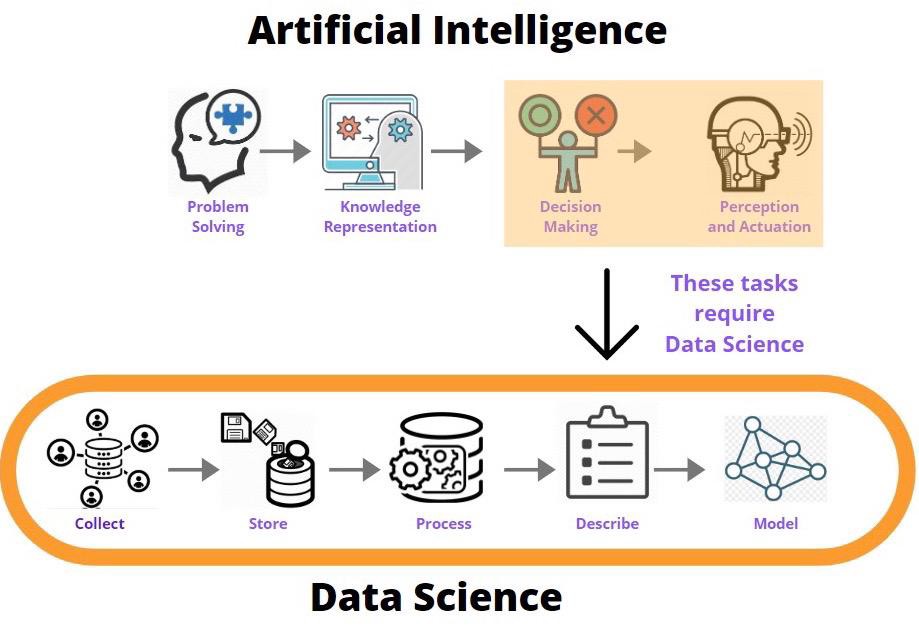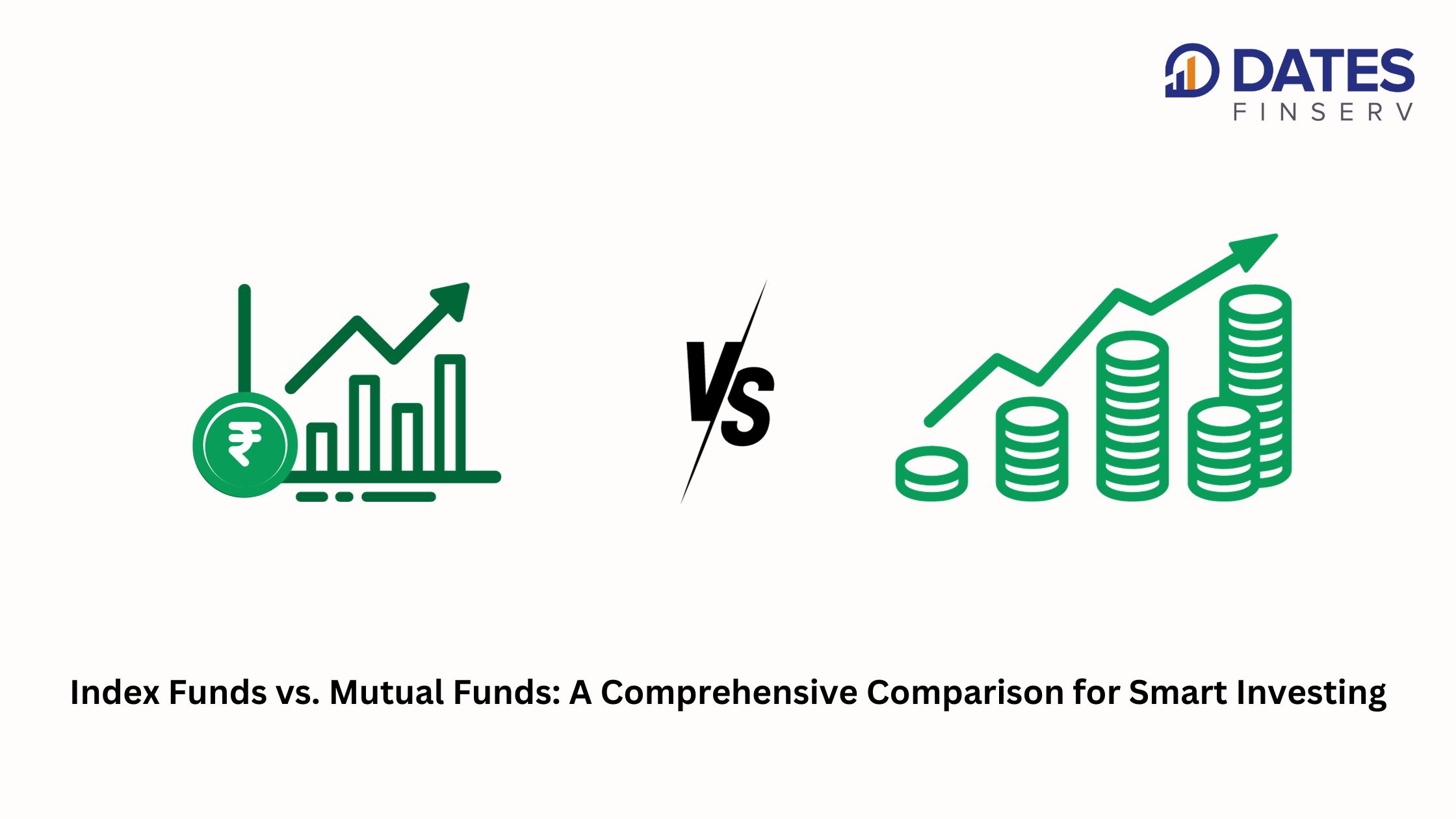Introduction
In today’s tech-driven world, both data science and artificial intelligence are buzzwords that are often used interchangeably, yet they represent different fields with unique applications and career paths. Data science focuses on extracting insights from large datasets, while artificial intelligence is about creating systems that can perform tasks that usually require human intelligence. The question of which is easier—data science or AI—depends on various factors, including your background, interests, and the specific aspects of each field.
What is Data Science?
Data Science is a multidisciplinary field that combines statistics, mathematics, computer science, and domain-specific knowledge to analyze and interpret complex data. Data scientists use various tools and techniques to uncover patterns, make predictions, and provide actionable insights that can help organizations make data-driven decisions.
Core Components of Data Science
- Data Collection and Cleaning: Gathering data from various sources and preparing it for analysis by cleaning and preprocessing.
- Exploratory Data Analysis (EDA): Analyzing datasets to summarize their main characteristics, often using visualizations.
- Statistical Analysis: Applying statistical techniques to understand data distributions, relationships, and trends.
- Machine Learning: Using algorithms to create predictive models and uncover patterns in data.
- Data Visualization: Presenting data insights through charts, graphs, and other visual tools.
- Reporting and Communication: Interpreting and presenting findings to stakeholders in a clear and actionable manner.
What is Artificial Intelligence?
Artificial Intelligence is a branch of computer science that aims to create systems capable of performing tasks that typically require human intelligence. This includes activities such as learning, reasoning, problem-solving, perception, and language understanding. AI encompasses a wide range of subfields, including machine learning, natural language processing (NLP), robotics, and computer vision.
Core Components of Artificial Intelligence
- Machine Learning (ML): A subset of AI that focuses on developing algorithms that allow computers to learn from and make decisions based on data.
- Deep Learning: A specialized form of machine learning using neural networks with many layers to process complex patterns.
- Natural Language Processing (NLP): Enabling machines to understand, interpret, and respond to human language.
- Computer Vision: Teaching machines to interpret and understand visual information from the world, such as images and videos.
- Robotics: Creating machines that can perform tasks autonomously or semi-autonomously.
Ease of Learning: Data Science vs. Artificial Intelligence
1. Background Knowledge Required
-
Data Science: Generally, data science requires a strong foundation in statistics and mathematics. Knowledge of programming languages like Python or R, as well as experience with databases and data manipulation tools, is crucial. Understanding domain-specific knowledge is also essential for interpreting results and making informed decisions.
-
Artificial Intelligence: AI also requires knowledge of programming and mathematics, particularly in areas such as linear algebra, calculus, and probability. A deeper understanding of algorithms and computer science principles is needed. For specialized AI fields like NLP or computer vision, additional knowledge in linguistics or image processing might be necessary.
2. Learning Curve
-
Data Science: The learning curve in data science is generally moderate. The initial stages involve learning basic statistical concepts, data manipulation, and visualization techniques, which can be relatively straightforward. However, mastering machine learning algorithms and advanced statistical methods can be challenging.
-
Artificial Intelligence: The learning curve for AI can be steeper, especially when delving into complex topics like deep learning and neural networks. Understanding the intricacies of how AI models work and optimizing them for specific tasks can be complex and time-consuming.
3. Tools and Technologies
-
Data Science: Popular tools include Python, R, SQL, Excel, and data visualization libraries like Matplotlib and Seaborn. Data scientists also use platforms like Jupyter Notebooks for data analysis and tools like TensorFlow and Scikit-learn for machine learning.
-
Artificial Intelligence: AI practitioners often use frameworks and libraries such as TensorFlow, Keras, PyTorch, and OpenCV. AI development also involves understanding the deployment of models using cloud platforms like AWS, Google Cloud, and Azure.
Skills Required: Data Science vs. Artificial Intelligence
1. Data Science Skills
- Statistical Analysis: Proficiency in statistical methods to analyze data and interpret results.
- Programming: Strong skills in Python, R, and SQL for data manipulation and analysis.
- Data Wrangling: Ability to clean, preprocess, and transform raw data into usable formats.
- Machine Learning: Understanding of various machine learning algorithms and their applications.
- Data Visualization: Skills in creating visual representations of data to communicate insights.
2. Artificial Intelligence Skills
- Programming: Proficiency in Python, C++, and other languages relevant to AI development.
- Algorithm Design: Ability to create and optimize algorithms for specific AI tasks.
- Mathematics: Strong foundation in linear algebra, calculus, probability, and statistics.
- Machine Learning & Deep Learning: Expertise in designing, training, and deploying machine learning and deep learning models.
- Domain-Specific Knowledge: Understanding of specific AI domains such as NLP, robotics, or computer vision.
Career Prospects: Data Science vs. Artificial Intelligence
1. Data Science Careers
Data science offers a broad range of career opportunities across various industries. Some common job titles include:
- Data Scientist
- Data Analyst
- Business Intelligence Analyst
- Data Engineer
- Machine Learning Engineer
Data scientists are in high demand in sectors like finance, healthcare, e-commerce, and marketing. They play a critical role in helping organizations make data-driven decisions, improve customer experiences, and optimize operations.
2. Artificial Intelligence Careers
AI careers are rapidly growing, with opportunities in both research and application development. Common job titles include:
- AI Research Scientist
- Machine Learning Engineer
- Data Scientist (with a focus on AI)
- Robotics Engineer
- Computer Vision Engineer
- NLP Engineer
AI professionals are sought after in tech companies, research institutions, healthcare, autonomous vehicle development, and more. They are involved in creating innovative solutions that can transform industries and improve daily life.
Real-World Applications: Data Science vs. Artificial Intelligence
1. Data Science Applications
- Predictive Analytics: Forecasting future trends based on historical data, used in finance for stock market predictions or in retail for demand forecasting.
- Customer Segmentation: Analyzing customer data to segment audiences for targeted marketing campaigns.
- Fraud Detection: Identifying unusual patterns in financial transactions that may indicate fraudulent activity.
- Healthcare Analytics: Analyzing patient data to improve healthcare outcomes and optimize treatment plans.
- Supply Chain Optimization: Using data analysis to improve supply chain efficiency and reduce costs.
2. Artificial Intelligence Applications
- Autonomous Vehicles: Developing self-driving cars that can navigate without human intervention.
- Chatbots and Virtual Assistants: Creating AI-powered chatbots that can handle customer service inquiries or virtual assistants like Siri and Alexa.
- Image Recognition: AI systems that can identify and categorize images, used in security, social media, and medical diagnostics.
- Natural Language Processing: Enabling computers to understand and respond to human language, used in translation services, sentiment analysis, and content generation.
- Robotics: Designing robots that can perform complex tasks in manufacturing, healthcare, and other industries.
Which is Easier: Data Science or Artificial Intelligence?
Determining which field is easier depends on your background, interests, and career goals:
-
Data Science might be easier for those with a strong background in statistics and a preference for working with data analysis and visualization. If you enjoy uncovering insights from data and using statistical techniques, data science could be more straightforward.
-
Artificial Intelligence might be easier for those with a solid foundation in computer science, programming, and mathematics. If you are passionate about creating intelligent systems and solving complex problems using algorithms, AI might be the right path.
Conclusion
Both data science and artificial intelligence offer exciting opportunities and challenges. The ease of learning either field depends on your existing skills, interests, and the specific areas you wish to explore. Data science provides a broader focus on analyzing and interpreting data, making it more accessible to those with a background in statistics and analytics. In contrast, AI requires a deeper understanding of computer science and mathematics, making it more suitable for those interested in developing intelligent systems.
Ultimately, both fields are interrelated and often complement each other. As you explore either field, you will likely find yourself learning concepts and techniques from both data science and AI. By understanding your strengths and interests, you can choose the path that aligns best with your career aspirations and enjoy the journey of learning and innovation.




